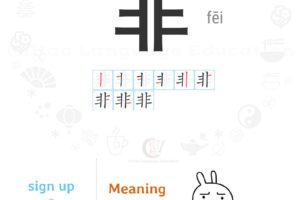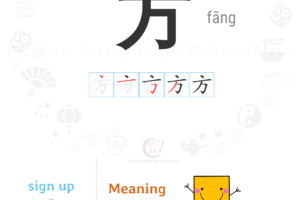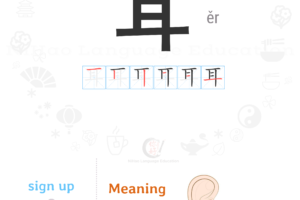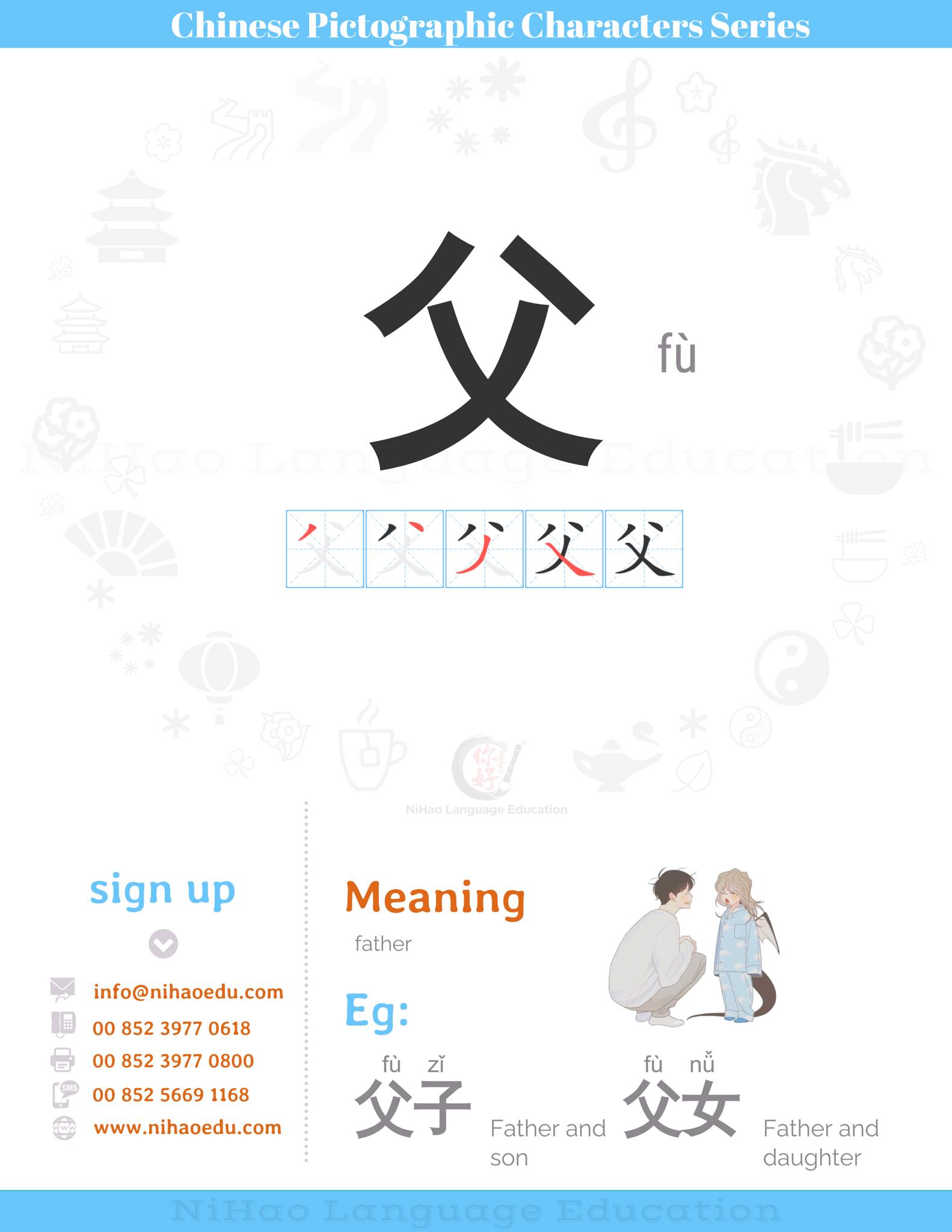Chinese Radicals Series父fù
- Posted by NIHAO
- Categories Chinese Radicals Series
- Date 2020-11-02
- Comments 0 comment
The earliest form of the word 父fù looks like a hand holding a stone ax, which was then a weapon used to kill animals, as well as an essential tool in daily life. As using an ax required strength, such tasks naturally fell on the shoulders of adult men. By extension, the word came to be associated with ‘father’.
Some scholars, however, believe that the ancient character looks like a hand grasping a stick, represented by the vertical line. In the past, it was common for a father to discipline his children with a stick since it used to be said that 子不教, 父之过 (zǐ bú jiào, fù zhī guò, ‘when the son is not properly taught, it is the father’s fault’).
The image of the father in Chinese culture used to be one of sternness. He was probably less smiling than his modern counterpart. That is why, traditionally, he was referred to as 严父 (yán fù,’stern-looking, no-nonsense father’) as opposed to 慈母 (cí mǔ,’caring mother’).
The word 父 can be used in phrases to mean ‘father’, as in 父亲 (fù qin,’ father’) and 父母 (fù mǔ,’ parents’). Words that contain 父 as a component are usually related to ‘father’, for example, 爷 (yé,’ grandfather’) 爸 (bà,’ father’) and 爹 (diē, ole word for ’father’).
Idioms and phrases
父老 fù lǎo
A phrase that refers to the elders in one’s hometown
父母之命,媒妁之言 fù mǔ zhī mìng,méi shuò zhī yán
Literally ‘parents’ orders and matchmaker’s words. In the past, parents would decide for their children who they were going to be married to. A matchmaker (usually a woman) would be employed to serve as a go-between, to discuss matrimonial matters with the parents of the other side.
父女 fù nǚ
Father and daughter
父子 fù zǐ
Father and son
子承父业 zǐ chéng fù yè
The son following in the footsteps of father or inheriting the father’s business
你也许也喜欢

Chinese Radicals Series非fēi

Chinese Radicals Series方fāng

